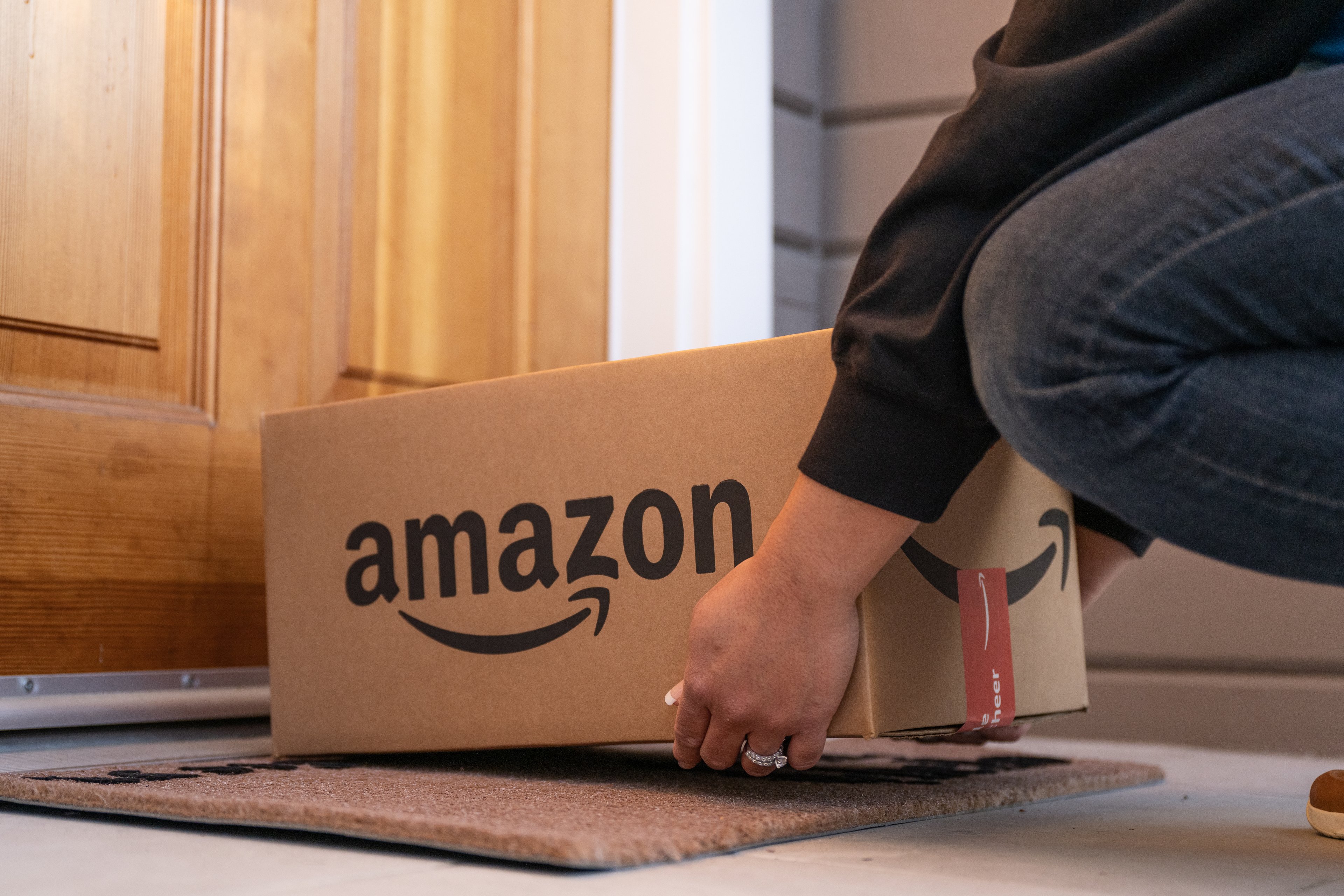Amazon's (AMZN 2.31%) 40% rally over the past 12 months made it a Wall Street darling, as its marketplace crushed brick-and-mortar retailers and AWS (Amazon Web Services) dominated the cloud platform market. Many recent headlines focus on companies in both industries being "Amazoned", making the tech giant seem like an unstoppable behemoth.
I believe that Amazon is still a good buy today, even as its price climbs above $1,000. But I also think investors should pay attention to three other stocks that are also poised to benefit from Amazon's growth -- TJX Companies (TJX +0.74%), Twilio (TWLO 10.54%), and GameStop (GME 5.59%).

Source: Amazon.
TJX Companies
TJX, which owns off-price retailers T.J. Maxx, Marshalls, and HomeGoods, benefits from retailers being "Amazoned" because it buys their excess inventory at steep discounts. It accomplishes this via a network of over 1,000 merchandise buyers, who purchase goods from over 18,000 vendors. That scale gives it the clout to buy marked-down goods at dirt cheap prices.
TJX buys that inventory at such low prices that it can still sell the goods back to consumers at lower prices than Amazon's. That's why its gross margin has steadily improved over the past decade.
Source: YCharts
TJX isn't a high-growth company. Its comps rose just 1% last quarter, and it expects 1%-2% growth for the full year (which includes an extra week). Wall Street expects its revenue and earnings to respectively rise 7% and 10% this year. But those are solid numbers for a brick-and-mortar retailer, and its P/E of 20 remains slightly lower than the industry average of 21 for apparel retailers.
Twilio
Twilio's cloud platform handles text messages, calls, videos, and other content for apps. In the past, developers created those apps from scratch, which was buggy and time-consuming. By offering those features as a cloud service, Twilio makes it easier for developers to scale their apps.

Source: Getty.
Twilio co-founder and CEO Jeff Lawson was one of the first product managers of the Amazon team which created AWS, the platform on which Twilio runs. That experience convinced him that selling computing infrastructure as a cloud service was a viable business model.
Twilio's dominance of its niche convinced Amazon to integrate the company's APIs into its Lex chatbots, SNS notifications, Chime enterprise communication service, and Connect cloud-based contact center. The more people use those Amazon services, the more revenue Twilio will generate.
Analysts expect Twilio's revenue to rise 30% this year, but it's still deeply unprofitable. Its P/S ratio of 9 also remains higher than the industry average of 6 for application software makers. But Twilio could eventually evolve into a more diversified cloud company, so investors should keep a close eye on this stock.
GameStop
GameStop has shed more than 20% of its market value over the past 12 months on fears that the market shift toward digital distribution platforms and e-commerce would turn it into the "next Blockbuster." At first glance, its numbers look lousy -- analysts expect its revenue to rise just 1% this year, and for its earnings to drop 12%.
However, GameStop is also diversifying away from physical games toward collectibles, mobile devices, digital downloads, and even self-published games. But more importantly, it recently inked a deal with Amazon which lets customers apply their trade-in credit to their Amazon accounts for non-gaming purchases.
This partnership might benefit Amazon more, but it also brings customers back to GameStop's brick-and-mortar stores. While they're visiting GameStop locations to trade in their products for AmazonCash, they might purchase other products -- which would boost its comparable store sales.
GameStop is an unloved stock, but it's also still a very cheap one with a high dividend. Its P/E of 6 is well below the industry average of 46 for specialty retailers, and it pays a forward yield of 7.2% -- which is well supported by a payout ratio of 44%.
But mind the risks...
TJX, Twilio, and GameStop all represent alternative plays on Amazon, but their risk factors are very different. TJX is arguably the safest of the three, as plenty of "Amazoned" retailers will provide it with a steady flow of cheap goods.
Twilio is the riskiest, since it's small, it isn't profitable, and it faces new competitors. GameStop can be considered a deep value play, but its turnaround efforts need to pay off -- or it could still succumb to Blockbuster's fate.










